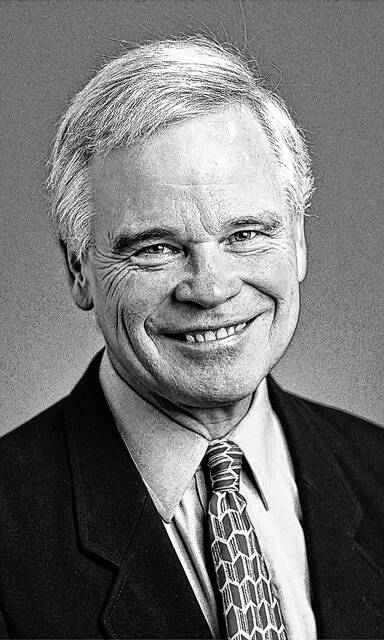In some North Carolina houses, this is a time of empty rooms and empty spaces. Children, so long ever-present, are now suddenly gone away to college.
Even though they knew the day was coming, there is great emptiness in their homes and in their hearts. This is true especially for parents, but also for grandparents, even though all knew that the day was coming.
Both my granddaughters are going far away to college, one to Vermont, the other to Scotland.
Both are so far away I will seldom see them.
My own children stayed reasonably close to home in North Carolina at Davidson.
Still the break was painful.
How much more so when the distance is more than a long drive away?
Each year I watch young parents bring their children to Chapel Hill.
So much is the same every year: Heavy trunks to carry up long stairways on the first day.
Waiting for them are professors—giants of teachers—whose love of scholarship and service is exceeded only by their commitment to the opening and nurturing of the minds of their students. Will they be worrying about the meaning of life, or something more important—like a broken date?
What makes taking or sending a child to college such a milestone for parents—such a passage? Is it the sudden freedom from the hour-to-hour worries of child rearing? No more waiting up past midnight—waiting and worrying. No more strain of daily negotiation for the use of cars, time of meals, attendance at church, volume of the music, or use of the bathroom.
Or is it the extra worry and uncertainty that comes with an absent child so far away in distance and independence?
Suddenly, the house is peaceful—and so empty. Gone is the daily joy of their companionship. Gone is the excitement of their new ideas. Gone is the richness and seasoning that their growing up brought to our lives—every day.
You wonder, “Does life have meaning without children to watch over?”
The answer is not certain.
But the question remains.
My granddaughters will live in the future, but the occasion draws me almost 100 years into the past when, in 1928, my father entered Davidson.
When these men, (it would be 50 years before women were allowed at Davidson) first came to college in the fall of 1928, they brought everything they needed in a suitcase or small trunk.
Things were different in the 1980s when my children entered college. Most students arrived in cars driven by their parents and loaded down with the students’ “things.” Former Davidson President John Kuykendall welcomed them with a short “freedom and responsibility” sermon to help explain what this business of leaving home for college is all about.
He reminded them that colleges and universities no longer pretend to take the place of parents or impose strict parental rules to dictate how the students will act. At 18, they must seek and find their own moral guides. And freedom means the freedom to fail.
Kuykendall would then talk about responsibility, explaining that free people have the responsibility to develop and accept rules if they are to live together in harmony and dignity. Our freedom to make choices makes us responsible for those choices. Freedom gives us the free choice to serve others. Freedom gives us the opportunity and the responsibility to search for the truth. That quest brings us towards the goal of a college education: a liberated mind, a mind that never stops searching, and never stops learning.
If our grandchildren’s college experience helps make them partners with us in a search for truth, then the pain of physical separation and giving them up to their own freedom can bring us together in a way that gives our lives rich new meaning.
D.G. Martin hosts “North Carolina Bookwatch,” Sunday 3:30 pm and Tuesday at 5:00 pm on PBS North Carolina (formerly UNC-TV). The program also airs on the North Carolina Channel Tuesday at 8:00 pm and other times.

